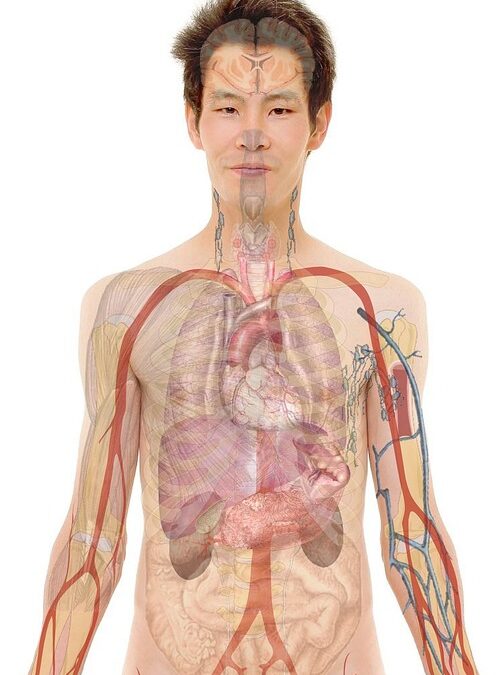Guillain-Barre syndrome or GBS is an autoimmune disorder affecting the peripheral nervous system. According to experts like Neurologist in Karachi this disorder leads to tingling, numbness, weakness and eventually paralysis. Read on to know more about symptoms, causes, types and complications of Guillain-Barre syndrome:
What is Guillain-Barre syndrome?
The rare, but serious disorder of GBS involves an attack of the body’s defense mechanism against its own healthy nerve cells of the peripheral nervous system (PNS). The exact cause of this disease is unknown, though it is often triggered by a prior infectious illness, typically a gastrointestinal infection or a lung infection.
In fact, according to the Centers for Disease Control and Prevention (CDC), more than sixty percent of cases of GBS develop after respiratory tract infection or diarrhea due to campylobacter. Other infections associated with GBS include:
- Flu
- Epstein-Barr virus (EBV)
- Mycoplasma pneumonia
- Cytomegalovirus
- Mononucleosis
- HIV and AIDS
- Zika virus
- Hepatitis A, B, C, E
- COVID-19 virus
- Influenza virus
According to the National Institute of Neurological Disorders and Stroke, the incidence of Guillain-Barre syndrome in the United States is about 1 in 100,000, particularly those aged 50 and above. About 85 percent of people with this illness make a complete recovery in the following six to twelve months, and the chances of recurrence are rare. With timely treatment, the complications can be managed.
What are the types of Guillain-Barre syndrome?
There are three primary types of Guillain-Barre syndrome. These are:
- Miller Fisher syndrome (MFS): in this type of GBS, the illness starts with the eyes, in addition to unsteady gait. This form of GBS is more common in the Asian subcontinent than in the America.
- Acute inflammatory demyelinating polyradiculoneuropathy (AIDP): this form of GBS is more prevalent in Europe and North America. Like typical GBS, this form starts in the lower limbs and then ascends upwards.
- Acute motor-sensory axonal neuropathy (AMSAN) and acute motor axonal neuropathy (AMAN): these types are more common in China, Mexico, and Japan.
Guillain-Barre syndrome secondary to vaccination
Occasionally, Guillain-Barre syndrome can develop secondary to flu vaccination that many adults receive in the winter season. Out of about 1 million flu shots administered annually, 1 to 2 people can go on to develop Guillain-Barre syndrome. Because of such risks, organizations like the CDC and Food and Drug Administration (FDA) monitor the safety of vaccines and have systems in place to detect early symptoms of Guillain-Barre syndrome.
What are the symptoms of Guillain-Barre syndrome?
The symptoms of Guillain-Barre syndrome include:
- Tingling sensation in the limbs including feet, toes, legs and arms, hands
- Difficulty in walking
- Muscle weakness that begins from the lower limbs and then ascends upwards
- Severe lower back pain
- As the weakness ascends there is difficulty chewing, swallowing, moving the eyes, and even talking
- Double vision
- Pain that gets worse at night
- Difficulty breathing
- Rapid heart rate
- Difficulty in controlling the bladder and bowel function
- Hyper- or hypo-tension
- Paralysis
What complications can occur secondary to GBS?
The complications of Guillain-Barre syndrome include:
- Bowel and bladder dysfunction: due to GBS there can be sluggish bowel function and urinary retention.
- Breathing difficulties: weakness or in extreme cases, paralysis of respiratory muscles and diaphragm can be a life-threatening complication of GBS. If the respiratory muscles get involved, a machine may be needed to help the patient breathe.
- Numbness: this complication is more evident as the patient recovers from GBS. While most people recover completely, there can be minor weaknesses still left.
- Pressure sores: immobility and complete rest can put the patient at risk of developing bed sores and pressure sores. Physical therapy with frequent repositioning can help avoid this complication.
- Blood clots: in addition to developing bed sores, immobility can result in stasis of blood and therefore, a risk of developing blood clots. Such patients are therefore prescribed preventive therapy with blood thinners and antiplatelets to combat this complication.
- Blood pressure issues: fluctuations of blood pressure, irregular heartbeat, and arrhythmias are common complications of GBS.
- Relapse: in a certain percentage of people, there can be a relapse of disease, even years after the disease has ended and the patient has recovered. Therefore, it is better to get treatment from an expert healthcare provider at Khatoon Hospital.
For more news and articles click here


